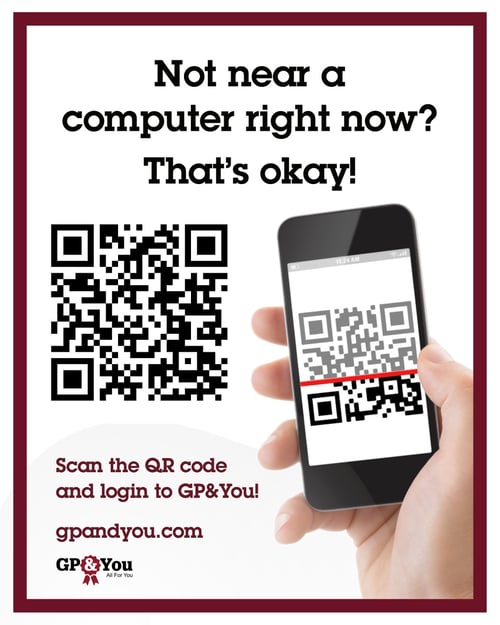We know that recognition is a powerful tool to drive motivation, increase connection and support employee wellbeing. To be most effective, it’s crucial that your recognition initiatives reach workers who are not at a desk or computer all day. All employees (wherever they’re located) deserve to be appreciated for the role they play in your company’s success.
Let’s dive into some ways our clients have found to effectively recognise offline workers.

In-person reminders from leaders
Employees are often waiting to see if a new initiative is something they really need to pay attention to. And if recognition hasn’t been a focus in the past, it may be easy for employees to shrug off recognition as something that is much more about corporate employees. Setting aside time welcomes them into using your recognition program and ensures you will have early adopters to kickstart participation.
 The C-Suite Road Show:
The C-Suite Road Show:
One of our clients uses ‘listening tours’ to ensure senior leadership gets time with people across locations and departments. Often it is their CEO and CHRO who travel to key locations quarterly to give in-person business updates. These meetings are also used to highlight recognition for that location, remind employees how to participate, and even to help them download the Connect+ app.
-
The HR Partner: Sometimes it is an HR contact co-located with deskless or offline groups that can make themselves available – maybe dropping by the break room or a shift huddle, asking for examples of great work, validating those stories as great examples that everyone would love to see and helping employees get online to submit those stories themselves.
-
Managers giving employees a voice: Managers can do a lot to prompt examples of recognition in their day-to-day conversations. ‘What are you proud of?’ or ‘Who helps you do your job better or easier?’ Occasionally taking time in huddles to remind people how to use recognition programs gives employees a voice, and drives a culture of recognition.
Post values and recognition visuals
 Recognition is an important way to build connection and appreciation within employee teams, but it is best when it is based in your mission or values.
Recognition is an important way to build connection and appreciation within employee teams, but it is best when it is based in your mission or values.
Set up common areas with information about your values, along with tips for accessing recognition. Lately, our clients are posting QR Codes to allow employees to easily jump into the site.
Often, managers from offline groups will use online recognition alerts or recognition email digests as ways to highlight recognition that can be posted and viewed offline. It may seem counterintuitive to print off digital recognition, but those visual reminders of the program – along with examples of coworkers delivering on your values – can do a lot to ensure employees are in the loop on the good work and actions of other groups as those that are able to access those stories online. If this seems like one too many tasks for managers, they can nominate a culture-focussed employee to take on this task and update recognition stories weekly.
Use campaigns to drive usage
Something we’ve learned over the years is that you can drive year-round usage by putting together a simple recognition calendar.
 You shouldn’t overprogram or try to do more than your team has time for, but a few events can draw attention to recognition and keep things interesting. Many clients run a contest at launch – for example, anyone placing a nomination in the first month is entered into a raffle. Or they might promote a value or goal once or twice a year.
You shouldn’t overprogram or try to do more than your team has time for, but a few events can draw attention to recognition and keep things interesting. Many clients run a contest at launch – for example, anyone placing a nomination in the first month is entered into a raffle. Or they might promote a value or goal once or twice a year.
We have a healthcare client that had a goal of improving interactions between employees so they provided weekly raffles for anyone submitting or receiving a ‘Kindness‘ eCard. To try and involve more people in sending recognition, clients can promote an eCard ‘cascade.’ In a cascade, if you get recognised, you are asked to ‘pass it along’ by then recognising two additional people. This takes advantage of the natural tendency to recognise more when you have been recognised yourself. You can see this participation graph shows an employee appreciation event spike in participation, but that event also increased average participation in the months that followed!
Have leaders comment or react to recognition stories
While peer-to-peer recognition is important – managers can’t be everywhere at once, so peers ensure great work is more likely to get noticed – employees want to know their work matters to leaders.
When recognition stories are highlighted, leaders and managers can reinforce this appreciation in little to no time. Our clients’ managers get alerts when someone on their team is recognised so they won’t miss a chance to celebrate great work, but even recognition that is highlighted in face-to-face huddles can be made more powerful by elevating it to higher-level leadership. When employees see that recognition stories that get shared gain leadership’s attention, they are more likely to take time to post recognition stories for the company to see.
Now, thanks to Reward Gateway’s new Boost feature, managers can also retroactively add financial rewards to published recognition moments – regardless of who sent it! For example, if an employee goes above and beyond for another team lead, who sends an eCard recognition moment, that employee’s manager can attach a bonus reward – right from the social wall – paving the path to more meaningful and impactful employee recognition.
Now, thanks to Reward Gateway’s Boost feature, managers can also retroactively add financial rewards to published recognition moments – regardless of who sent it! For example, if an employee goes above and beyond for another team lead, who sends an eCard recognition moment, that employee’s manager can attach a bonus reward – right from the social wall – paving the path to more meaningful and impactful employee recognition.
Getting offline or deskless employees engaged with recognition can take time, but with attention to these best practices – and by monitoring your success using reporting – you can build a program that not only recognises employees, but connects your team regardless of where they work!
Subscribe to our blog to stay up to date on HR thought leadership and handy tips to improve employee engagement and strengthen your EVP.
%20(1).jpeg) Alexandra Powell
Alexandra Powell
